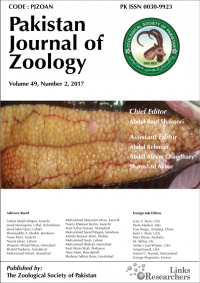ABSTRACT
An appropriate dietary quantity level is considered to be important in controlling body weight and improving semen quantity and quality in broiler breeder males. A total of 60 F line broiler breeder males from 20 maternal families were averagely distributed into three groups received treatments of 135.5, 125.5 and 115.5 g/d diet respectively with ME 2770 kcal/kg and CP 15.4% from 23 wk of age. Fertility trials were conducted in another three groups of F line hens with 20 hens in each group. A significantly positive interaction between dietary quantity and semen volume was observed (p<0.05) which showed that males fed with 135.5 g/d diet produced much more semen. Except for semen volume, there was no difference in semen concentration, sperm motility and useable spermatozoa/ejaculate before 32 wk of age (p>0.05). Feed quantity was correlated positively with sperm concentration and sperm motility. At 50 wk of age, higher sperm motility was observed in males fed with 135.5and 125.5 g/d diet than males fed with 115.5 g/d diet (p<0.05). While feed quantity was correlated positively with semen volume, sperm concentration, useable spermatozoa/ejaculate, negative correlations between body weight and sperm concentration. Body weight and sperm motility were significant (p<0.05) at 32 wk of age, but no significant correlations existed between body weight and semen characteristics at 50 wk of age (p>0.05). These data suggested that appropriate body weight or body weight gain after sexual maturity was necessary to optimize reproductive performance. In fertility trial, a significantly higher embryonic mortality (8.65%) and significantly lower hatchability (90.48%) was found in males fed with 135.5g/d diet than other two groups (p<0.05). Taken together, feed allocation of 125.5 g/d under ME 2770 kcal/kg and CP 15.4% was recommended to broiler breeder males of genetically modified F line after sexual maturity.
To share on other social networks, click on any
share button. What are these?










